D-Day 66th Anniversary - Longues-sur-Mer, Normandy - I took these at the Longues-sur-Mer gun battery in Normandy. The visit to the battery is free, self-guided, and a lot of fun since one can literally go in and out of various bunkers, observation towers and more. This is perhaps the most famous of the Atlantic Wall batteries. However, there were many other batteries in France and elsewhere such as Normandy that had much more impressive guns. But this one was the most famous of the D-Day batteries and so... The guns from here could have fired to either Omaha Beach or Gold Beach, but were disabled by naval gunfire on June 6th, 1944 and captured by the British. One can simply drive in and drive out of the area, which sits high on the cliffs and bluffs above the waves that crash below. This battery is the only one to have kept its 150mm guns and is in great condition. There are four Regelbau M 272 bunkers, each with a 150mm gun which could shoot up to 19.5 kilometers (about 12.5 miles). They sit a few hundred yards back from the edge of the 65 meter high (220 foot high) cliff. In spite of the massive bunkers protecting them, they face the beaches, and were thus very vulnerable to accurate naval fire. The range finding station sits right on the cliff.
Narayan
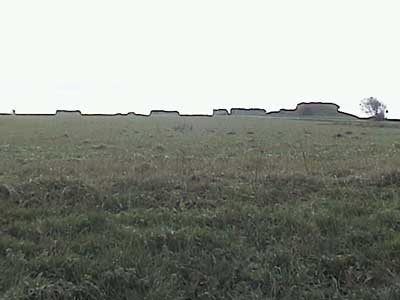
First view. The four main bunkers are silhouetted.
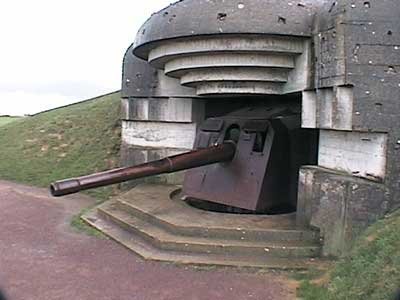
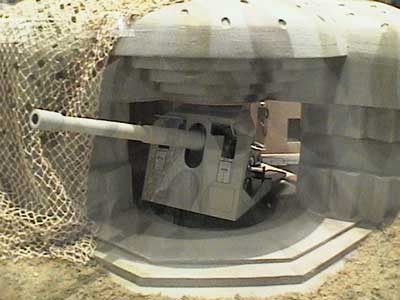
Left: Up close and personal. These are the original guns. I wanted to know the function of the "steps" in front as well as the indentations on the concrete since they seem too big for being holders for the framing used to set the concrete originally. Reader Doug Beck has let me know the following: "We were just there and were told that the steps are to prevent gun fire from ricocheting into the bunker (the steps would just stop the bullets). It needs steps so the gun can still point upwards. The indentations were for plants to grow in to camouflage the bunker."
Right: Model of the same type of bunker at the Caen Museum of Peace. Note the netting and the camoflage, both of which are long gone.
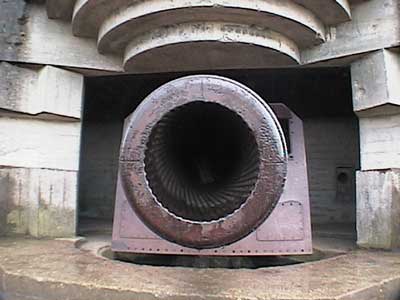
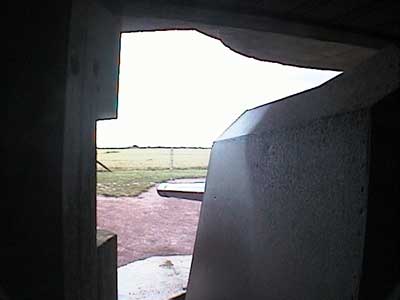
Left: The business end of one of the 150mm cannons. Note the rifleing.
Right: View from the inside of the same bunker.
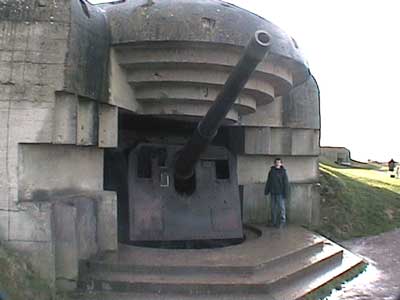
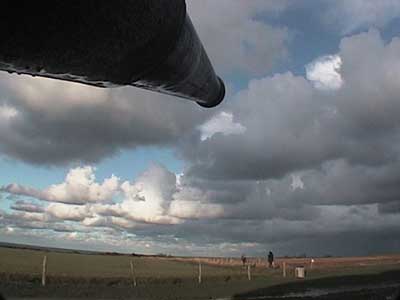
Left: The next bunker.
Right: The view from inside.
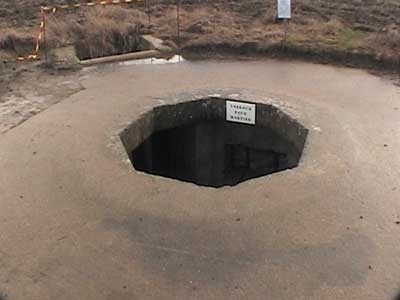
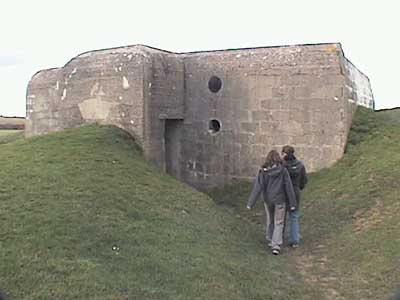
Left: Sentry/machine gun post called a Tobruk.
Right: Bunker.
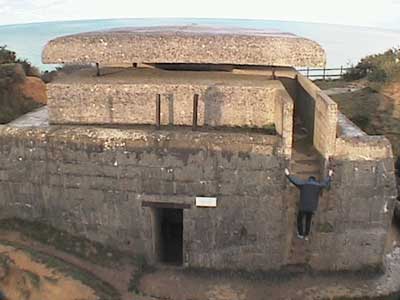
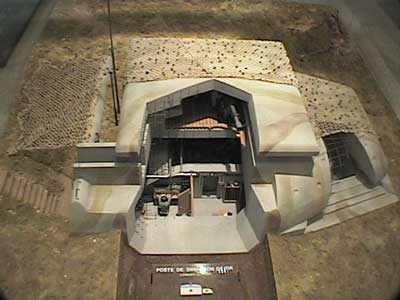
Left: Rear view of large observation post (Range-finding station) sitting directly above the cliffs.
Right: Side view of cut-away model of the same type of range-finding station at the Caen Museum of Peace. The rear is to the left and the front is to the right. Note the netting and the camoflage, both of which are long gone. There are also some aerials in the back. I'm not sure if those were for observation or venting or what, but they were probably for observation and possibly communication.
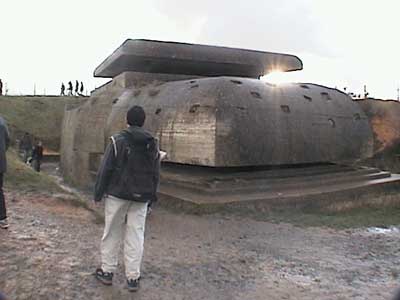
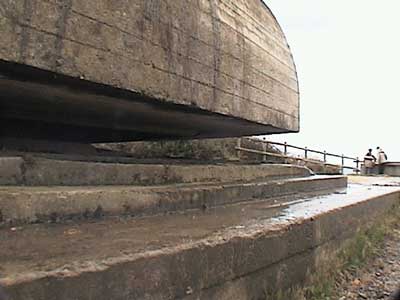
Left: Detail of front of the range-finding station bunker.
Right: Large range-finding station - front overlooking cliffs and sea.
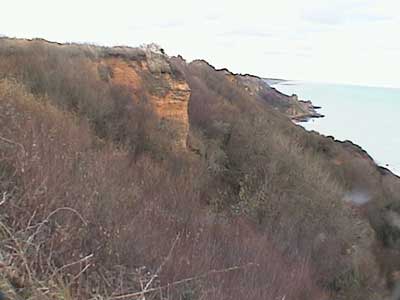
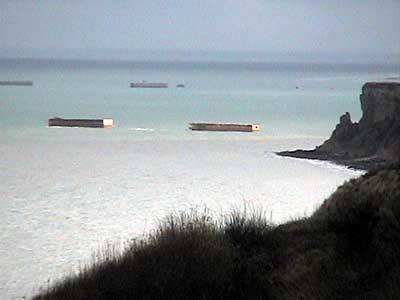
Left: The cliffs/bluffs below the observation post.
Right: The remains of the Mulberry of Arromanches just a few kilometers away. There is nothing left of the Mulberry at Omaha which was wrecked by a vicious storm just a few days after it was completed. Even this one was largely scrapped after the war by the French and others desperate for metal to help rebuilding.

 Home
Home
 USA
USA